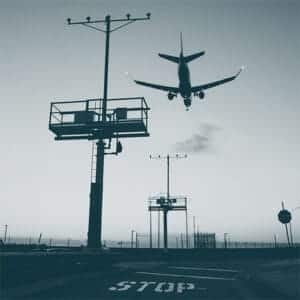IN NEED OF PENSION LAWYER?
ASK FOR LEGAL ASSISTANCE
OUR LAWYERS ARE SPECIALISTS IN DUTCH LAW
![]() Clear.
Clear.
![]() Personal and easily accessible.
Personal and easily accessible.
![]() Your interests first.
Your interests first.
Easily accessible
Law & More is available Monday to Friday from 08:00 to 22:00 and on weekends from 09:00 to 17:00
Good and fast communication
Pension Law
Pension law in the Netherlands has become its own legal area. It includes all pension laws and regulations that provide replacement income for employees after retirement. Examples include very specific legislation such as the Pensions Act, the Compulsory Participation in an Industry Pension Fund 2000 Act or the Equalization of Pension Rights in the Event of Divorce Act. This legislation concerns, among other things, the conditions that must be met in order to qualify for a pension, the rules regarding the management and payment of pension rights by pension providers and the measures to prevent pension infringements.
Quick Menu
- The retirement provision according to the pillar system
- Compulsory Participation in an Industry Pension Fund Act 2000
- Pension Act
Despite the fact that pension law is its own legal area, it also has many interfaces with the other areas of law. That is why, in the context of pension law, in addition to specific legislation and regulations, general legislation and regulations in the field of employment law, for example, also apply. For example, a pension is an important working condition for many employees, which is laid down and discussed in the employment contract. This condition partly determines the income in old age. In addition to employment law, the following areas of law can also be considered:
- Liability law;
- Contract law;
- Tax law;
- Insurance law;
- Equalization of pension rights in the event of divorce.
The Services of Law & More
Every company is unique. Therefore, you will receive legal advice that is directly relevant for your company.
“Law & More lawyers
are involved and can empathize
with the client’s problem”
The retirement provision according to the pillar system
The retirement provision that provides a replacement income for employees after retirement is also called the pension. In the Netherlands, the retirement provision system, or the pension system, has three pillars:
Basic pension. Basic pension is also referred to as OW-provision. Everyone in the Netherlands is entitled to such a provision. However, there are a number of conditions attached to this. The first condition for receiving the AOW-provision is that a certain age, namely 67 years, must have been reached.
The other condition is that one must always have worked or lived in the Netherlands. For every year that a person resides in the Netherlands from the 15th to the age of 67, 2% of the maximum AOW-provision is accrued. An employment history is not required in this case.
Pension rights. This pillar concerns the rights that a person has acquired during his working life and applies as a supplementary pension to the basic pension. More specifically, this supplement concerns the deferred salary that is paid jointly by the employer and the employee in the form of a premium.
Supplementary pension is therefore always built up within an employee-employer relationship, so that in this case an employment history is required. In the Netherlands, however, there is no general legal obligation for the employer to build up a (supplementary) pension for their employees. This means that agreements must be made between the employee and employer in this regard. Law & More will of course be happy to assist you with this.
Voluntary Pension. This pillar pertains in particular to all income provisions that people have made themselves before their old age. Examples include annuities, life insurance and income from equity. It is mainly the self-employed and entrepreneurs who have to rely on this pillar for their pension.
What clients say about us
Our Divorce lawyers are ready to assist you:
- Direct contact with a lawyer
- Short lines and clear agreements
- Available for all your questions
- Refreshingly different. Focus on client
- Fast, efficient and result-oriented

Assignment agreement
After the first meeting, you will immediately receive an assignment agreement from us by e-mail. This agreement states, for example, that we will advise and assist you during your divorce. We will also send you the general terms and conditions that apply to our services. You can digitally sign the assignment agreement.
After
Receiving the signed agreement of assignment, our experienced divorce lawyers will immediately start working on your case. At Law & More, you will be kept informed of all the steps your divorce lawyer takes for you. Naturally, all steps will first be coordinated with you.
In practice, the first step is often to send a letter to your partner with the divorce notice. If he or she already has a divorce lawyer, the letter is addressed to his or her lawyer.
In this letter we indicate that you want to divorce your partner and that he or she is advised to get a lawyer, if he or she has not already done so. If your partner already has a lawyer and we address the letter to his or her lawyer, we will generally send a letter stating your wishes with regard to, for example, the children, the home, the contents, etc.
Your partner’s lawyer can then respond to this letter and express the wishes of your partner. In some cases, a four-way meeting is scheduled, during which we try to reach an agreement together.
If it is impossible to reach an agreement with your partner, we can also submit the divorce application directly to the court. This way, the procedure is started.
Compulsory Participation in an Industry Pension Fund Act 2000
Despite the fact that employers in the Netherlands are not obliged to arrange a (supplementary) pension for their employees, under certain circumstances they may still be obliged to arrange a pension. This is the case, for example, if participation in a pension scheme is compulsory for the employer via an industry-wide pension fund. This obligation arises if a so-called mandatory requirement applies to a specific sector: a description approved by the minister of the sector to which compulsory participation in an industry-wide pension fund applies. The Compulsory Participation in an Industry Pension Fund Act 2000 regulates the possibility of a compulsory pension scheme for all employees in a particular industry or sector.
If participation in an industry-wide pension fund is compulsory, employers active in the relevant sector must register with that industry-wide pension fund. Subsequently, the fund requests the information about the employees to be provided and the employers receive a bill for the pension premium they have to pay. If the employers are not affiliated with such an industry-wide pension fund, even though there is an obligation to do so, they will be in a disadvantageous position. After all, in that case there is a chance that the industry-wide pension will still claim the full premium payment for all years retroactively. At Law & More we understand that this has a drastic consequence for employers. That is why Law & More’s specialists are ready to help you avoid such a disadvantage.
 Pension Act
Pension Act
The core of pension law is the Pension Act. The Pensions Act includes rules that:
- Prohibit the commutation of pension rights
- Grant rights with regard to value transfer in the event of succession of employer;
- Prescribe employee participation with regard to the policy of the pension provider;
- Require a minimum expertise regarding the expertise of the board members of the pension providers;
- Regulate the way in which pension funds should be financed;
- Prescribe the minimum information obligations of the pension provider.
One of the other important regulations in the Pensions Act concerns the conditions that, if concluded, a pension agreement between the employer and the employee must meet. In this context, Article 23 of the Pensions Act stipulates that the pension agreement must be placed within a recognized pension fund or a recognized pension insurer. If the employer does not do this, or at least not adequately, he runs the risk of employer’s liability, which can be initiated by the employee via the general rules of contract law. In addition, compliance with legislation and regulations in the context of pension law, as already mentioned, is monitored by the DNB and the AFM, so that violations are also sanctioned by other measures.
At Law & More we understand that when it comes to pension law, not only different complex laws and regulations, but also different interests and complex legal relationships are involved. That is why Law & More uses a personal approach. Our expert specialists in the field of pension law immerse themselves in your case and can assess your situation and the possibilities together with you. Based on this analysis, Law & More can advise you on the right next steps. Furthermore, our specialists are happy to provide you with advice and assistance during a possible legal procedure. Do you have questions about our services or pension law? Then contact Law & More.
Law & More Attorneys Eindhoven
Marconilaan 13, 5612 HM Eindhoven, Netherlands
Law & More Attorneys Eindhoven
Marconilaan 13, 5612 HM Eindhoven, Netherlands
Do you want to know what Law & More can do for you as a law firm in Eindhoven and Amsterdam?
Then contact us by phone +31 40 369 06 80 or send an e-mail to:
mr. Tom Meevis, advocate at Law & More – [email protected]




